<< Previous | Displaying results 5826-5850 of 6769 for "" | Next >>
Jewish women deported from Bremen, Germany, are forced to dig a trench at the train station. Minsk, Soviet Union, 1941. (Source record ID: E9 NW 33/IV/2)
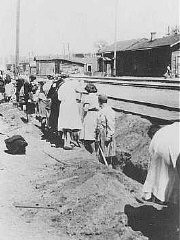
A poster in Hebrew soliciting contributions from members of the Yishuv (the Jewish community of Palestine) for army recruitment and for efforts to rescue European Jewry. The Hebrew text reads "Give a hand in rescue, the Fund for Recruitment and Rescue." Palestine, July 22, 1943.
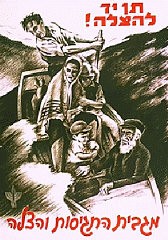
This photograph shows the refugee ship Pentcho, carrying over 500 passengers bound for Palestine, sailing in the Aegean Sea. It had departed from Bratislava on May 18, 1940. In October 1940, while the Pentcho was sailing in Italian territory, its boiler exploded. The passengers and crew were able to get ashore and offload their supplies before the ship finally sank. On October 18 and 19, Italian authorities picked up the refugees and took them to Rhodes. They stayed there for over a year in a…
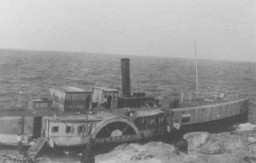
Jewish refugees in Lisbon, including a group of children from internment camps in France, board a ship that will transport them to the United States. Lisbon, Portugal, June 1941.
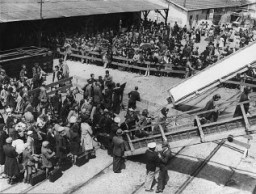
Jewish refugee youth from French transit camps at the Children's Aid Society (OSE) home "Maison des Pupilles de la Nation." Some of the children are in flight, en route to Switzerland. Aspet, France, June-August 1942.
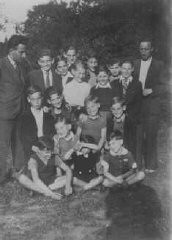
Jewish refugee youth, on an escape route from France to Switzerland, at a Children's Aid Society (OSE) girls' home. Couret, France, ca. 1942.
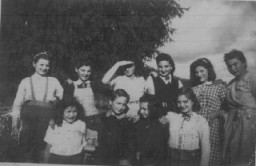
Children and staff leaving for the "Morgenroyt" schools summer camp, organized by the Bund (Jewish Socialist party). The camp was located near Chernovtsy on the Prut River. Chernovtsy, Romania, 1939.
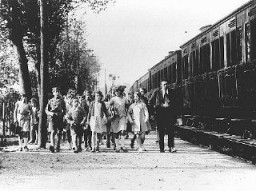
In Hitler's presence, Romanian ruler Ion Antonescu signs the Three-Power Agreement. Berlin, Germany, November 23, 1940.
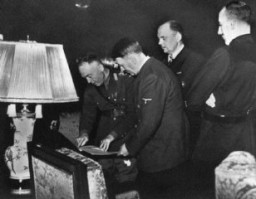
Along the route from Iasi to either Calarasi or Podul IIoaei, Romanians remove corpses from a train carrying Jews deported from Iasi following a pogrom. Romania, late June or early July 1941.
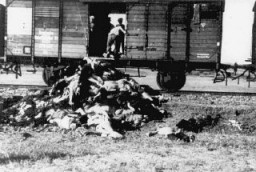
During the deportation of survivors of a pogrom in Iasi to Calarasi or Podul Iloaei, Romanians halt a train to throw off the bodies of those who had died on the way. Romania, July 1941.
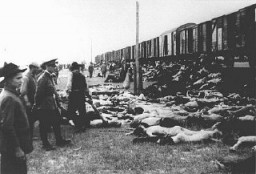
Romanian Jews who were assembled in a Bessarabian village in September 1941 before deportation to Transnistria.
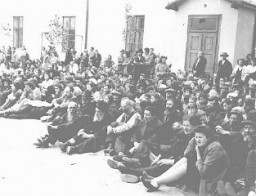
An 18-month-old Jewish boy, Chaim Leib, who was murdered at the Auschwitz killing center in occupied Poland. Bukovina, Romania, 1942.
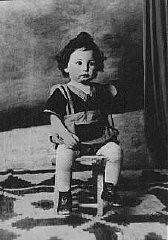
Former Romanian prime minister Ion Antonescu (center) before his execution as a war criminal. Fort Jivava, near Bucharest, Romania, June 1, 1946.
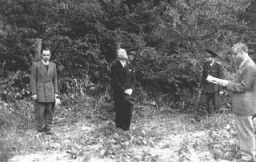
A Romanian firing squad prepares to execute former Romanian prime minister Ion Antonescu. Camp Jivava, near Bucharest, Romania, June 1, 1946.
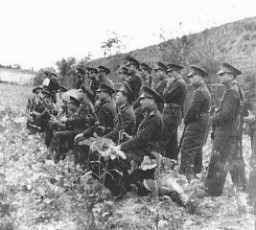
German soldiers lead blindfolded Polish hostages to an execution site. Olkusz, Poland, July 16, 1940.
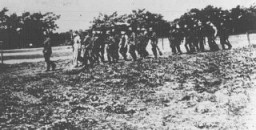
A Nazi decree issued in October 1941, in German and Polish, warns that Jews leaving the ghetto, or Poles who aid them, will be executed. Czestochowa, Poland.
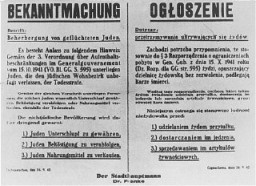
German soldiers expel Polish inhabitants from the Zamosc area. Poland, 1942-1943.
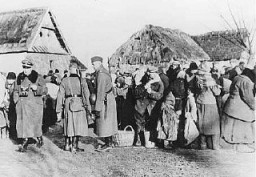
German officers examine Polish children to determine whether they qualify as "Aryan." Poland, wartime.
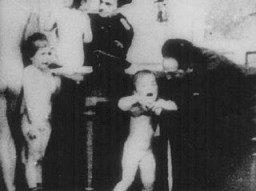
Polish babies, chosen for their "Aryan" features, to be adopted and raised as ethnic Germans. Poland, 1941–1943.
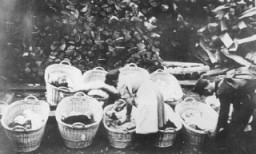
Polish and Russian forced laborers shot by the SS after they had collapsed from exhaustion during a death march. Wisenfeld, Germany, April 26, 1945.
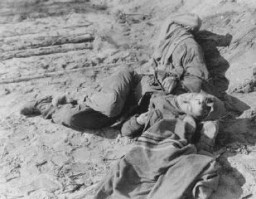
A Polish town in ruins after six years of war and German occupation. Poland, 1945.
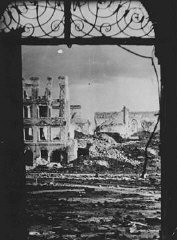
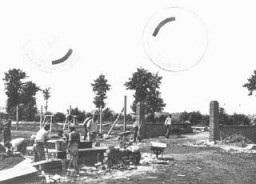
Prisoners at forced labor in the Neuengamme concentration camp, Germany, 1941-1942.
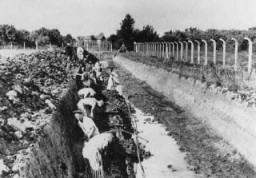
Prisoners at forced labor in the brick factory at Neuengamme concentration camp. Germany, date uncertain.
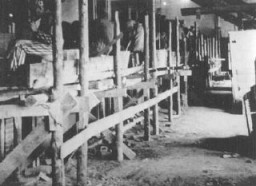
View of the Neuengamme concentration camp. Prisoners stand behind the fence that separates the "protective custody" camp from the manufacturing sectors of the camp. In the distance are the crematorium and the Walther armaments works. Photograph taken between 1940 and 1945, Neuengamme, Germany.
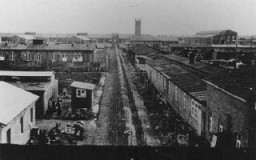
We would like to thank Crown Family Philanthropies, Abe and Ida Cooper Foundation, the Claims Conference, EVZ, and BMF for supporting the ongoing work to create content and resources for the Holocaust Encyclopedia. View the list of donor acknowledgement.